CES 2018: The Best Of The Best
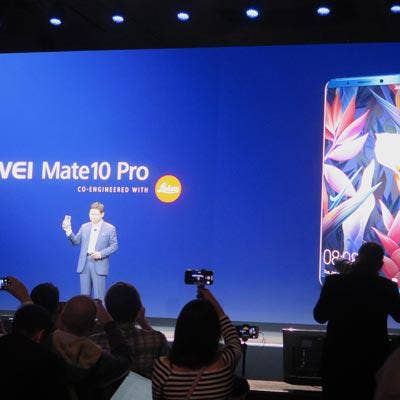
CES Innovation
Aside from a two-hour power outage in the middle of the show, the massive tech summit of CES 2018 did not disappoint. The Las Vegas extravaganza showcased significant innovations in areas such as the Internet of Things, mobility, 3-D printing and virtual reality -- products that will set the tone for the year ahead in technology. CRN was on hand for demos of a wide variety of products this week, and we naturally came away impressed with some more than others. What follows are CRN's picks for the 15 best products we saw at CES 2018.
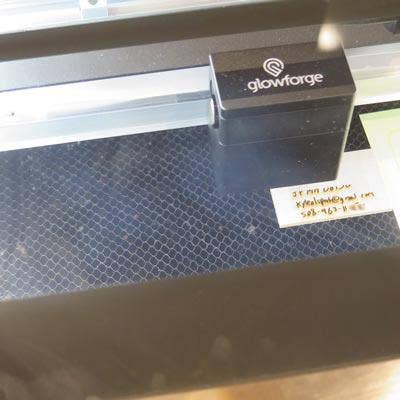
Glowforge 3-D Laser Printer
A new era of 3-D printing -- using all manner of materials -- is kicking off with the arrival of the Glowforge 3-D Laser Printer. The Glowforge expands 3-D printing beyond plastic to include materials such as wood, leather, acrylic, paper, and fabric. The printer breaks new ground by using laser cutting and engraving to shape the materials into the desired state. For our demo at CES, the Glowforge cut a custom luggage tag that replicated a scanned image of our handwriting. The highly versatile printer opens up a broad range of new possibilities to designers -- such as creating customized leather satchels and hardwood laptop skins, for example. And demand is surging for the printer, which starts at $4,000, with Glowforge reporting $70 million in sales in two years.
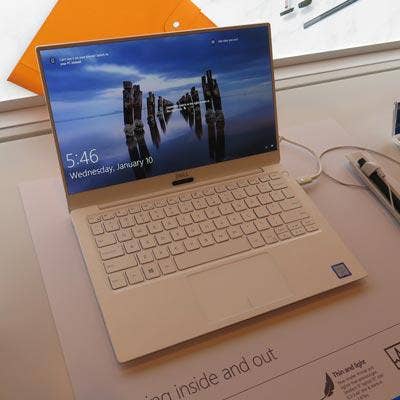
Dell XPS 13
Dell used CES 2018 to show off its newly launched XPS 13 laptop, which has gotten a full redesign for the first time in three years. The results are extraordinary: While the previous XPS 13 was already one of our favorite laptops, Dell has managed to significantly improve the portability of the computer while also making it more powerful and durable. The new XPS 13 uses Intel's eighth-generation Core processors, promises up to nearly 20 hours of battery life and offers a 4K option for the convertible, narrow-bezel display. Regarding portability, the XPS 13 is now 24 percent smaller in overall volume -- measuring just 0.46 of an inch thick, compared to the previous 0.6 of an inch thick. Meanwhile, a new white color option for the interior of the laptop is made from woven glass fiber, which is UV-resistant and stain resistant. The palm rest, in fact, is cleanable; a demo showed that even a Sharpie smudge could be easily cleaned off. The starting price for the new XPS 13 is $1,000, and the laptop is available now.

IBM 50-Qubit Quantum Computer
One of the most mind-boggling showcases at CES 2018 was IBM's prototype of a working 50-qubit quantum computer. The prototype is the largest quantum computer in the world right now thanks to its use of a 50-qubit processor, according to Jeff Weiser (pictured), vice president and lab director at IBM Research. The quantum computer promises to solve problems that conventional computers will never be able to tackle, by bringing unprecedented power and speed to computing through leveraging the principles of quantum physics. "You can essentially test all numbers against a problem at once, in parallel," Weiser said. "It gives you a massive parallelization." The system wasn't able to operate at the show because to do that requires keeping the machine to a temperature far colder than deep space. Potential applications of the quantum computer include complex optimizations, searches, and machine learning. Initially announced in November, IBM's 50-qubit quantum computer has not yet been released for use by commercial partners, but the company does have its 20-qubit quantum computer currently available for partners.
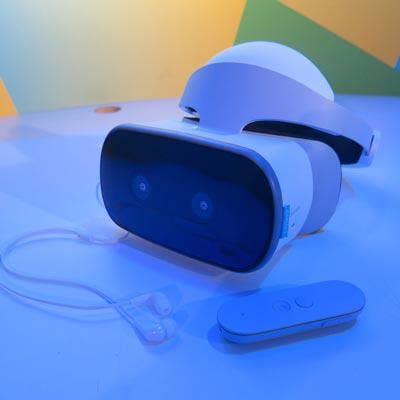
Lenovo Mirage Solo
During CES 2018, Lenovo unveiled its Mirage Solo virtual-reality headset, the first stand-alone headset running Google Daydream. That means that unlike other Daydream headsets, the Mirage Solo won't need an Android smartphone to power it. The headset also doesn't require extra sensors or cords to track head movements, which is another differentiator from many other VR headsets. For the display, the headset features a 5.5-inch LCD with QHD (2,560 x 1,440) resolution and an impressive 110-degree field of view. And for the processor, the Mirage Solo includes the same chip that powers many of the leading Android smartphones on the market -- Qualcomm's Snapdragon 835. Judging from our highly enjoyable tryout of the headset at CES, it's clear that Lenovo is in contention to become a serious player in the VR space. Lenovo said the Mirage Solo will be priced at less than $400 and will be available in the second quarter of 2018.
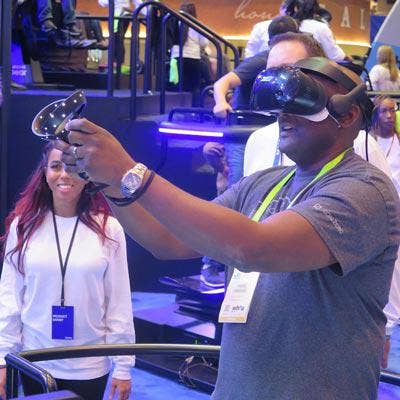
Samsung HMD Odyssey
Our other favorite reality-altering headset at CES 2018 was Samsung's HMD Odyssey. We found the headset to cause much less disorientation -- and better immersion in the virtual experience -- than some of the other headsets on display at CES. Introduced in the fall, Samsung's HMD Odyssey is a Windows Mixed Reality headset that features integrated AKG headphones and vibrant dual 3.5-inch AMOLED displays. The headset enables such a high degree of immersion in games and videos with a 110-degree field of view and 360-degree surround sound. The HMD Odyssey also includes two cameras, a built-in microphone, and sensors including a proximity sensor. Importantly, extra motion sensors aren't needed for the HMD Odyssey, unlike with many other head-mounted displays. The Samsung HMD Odyssey is priced at $499.99.
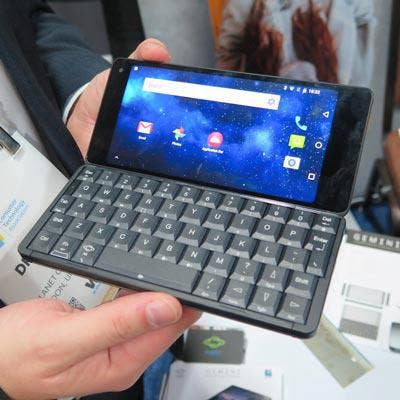
Gemini PDA
If the crowds that visited the Gemini booth at CES 2018 are any indication, it may be a good time for the personal digital assistant to attempt a comeback. The Gemini folds open to reveal a physical keyboard, similar to the Psion PDA of the '80s and '90s. The big difference this time: the Gemini PDA is a full-fledged Android smartphone. Essentially, what you get with the Gemini is a small clamshell laptop -- with a 6-inch FHD display and 10-core MediaTek Helio X27 CPU -- that folds back up to make phone calls. The Gemini will come in both Wi-Fi-only and 4G models; the unlocked phone will work with all major U.S. carriers, according to its manufacturer, Planet Computers. The Gemini is poised to be a winner for those who miss their PDA of old, yet are still happy to be in the era of always-connected mobile devices. The Gemini is priced at $499 for the Wi-Fi-only model and $599 for 4G/Wi-Fi capability. It's expected to be commercially available in the next few months.
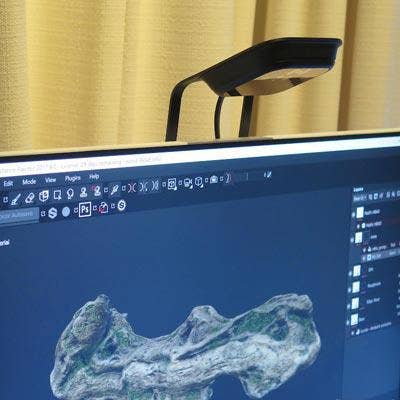
HP Z 3-D Camera
HP introduced an impressive new product at CES 2018, the HP Z 3-D Camera, which can capture and digitize 3-D objects and other content. The concept for the camera is borrowed from the 3-D camera on the Sprout Pro G2, but the HP Z camera is more compact, at 4.51 x 8.73 x 5 inches. The HP Z 3-D Camera also captures 2-D documents and video along with 3-D objects, and the down-facing camera attaches to the top of a computer display. Uses included scanning 3-D objects for virtual reality and physically based rendering applications. The HP Z 3-D Camera will be available in March for $599.
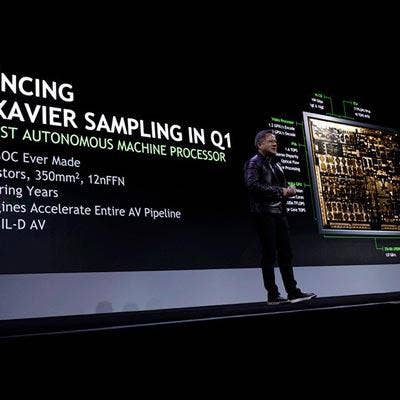
Nvidia Xavier
Nvidia revealed new autonomous machine processors – called Drive Xavier – at CES. The Drive Xavier, which is for manufacturers trying to build self-driving cars, packs 9 billion transistors and an 8-core CPU, coupled with a 356-core Nvidia Volta GPU. The processor also features technology targeted toward deep learning, computer vision, and 8k video processing. Nvidia said that the first samples of Xavier would hit the market in the first quarter of 2018.
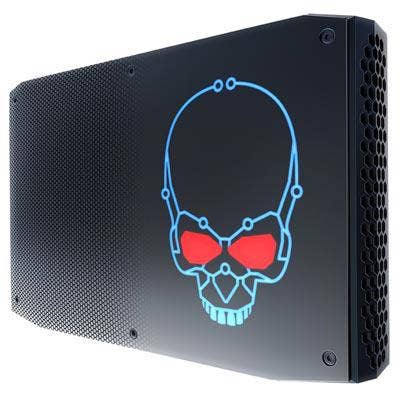
Intel NUC
At CES this week, Intel took the wraps off its newest version of NUC, a "Next Unit of Computing" mini PC kit that system builders can use for digital signage, media centers and kiosks. The NUC, codenamed "Hades Canyon," also features AMD Radeon RX Vega M graphics. Intel's newest NUC, which it said would be on the market in the spring for an undisclosed price, is the smallest virtual reality-capable system ever made.
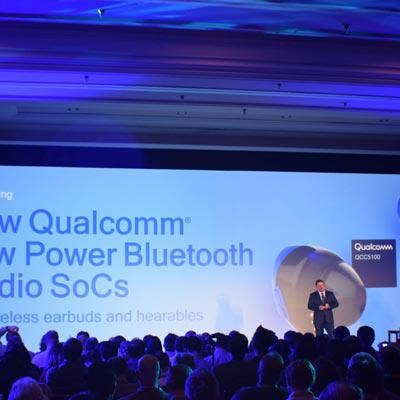
Qualcomm Bluetooth Audio SoC
Qualcomm debuted a Bluetooth SoC for wireless audio devices, or "hearables," at CES. The chip company said that its new SoC, the QCC5100 series, would reduce power consumption and increase processing power in wireless earbuds and headsets. The SoC has an array of attractive features, including Bluetooth 5 dual-more radio, noise cancellation technology and low power audio systems.
The announcement comes as more vendors showed off hearing technology – including ear-to-ear translation earbuds and noise-canceling wireless earbuds – at CES.
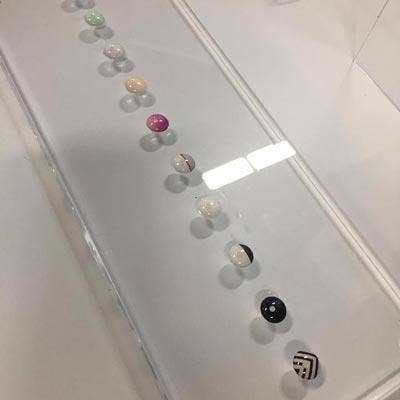
L'Oreal's UV Sense
L'Oreal unveiled a new wearable at CES called UV Sense – but it isn't a headset or bracelet. The UV Sense sticks onto consumers' nails with adhesive glue and tracks their UV exposure. UV Sense, which is battery-free, connects to apps on smartphones to deliver data about sun exposure based on the user's location. The product will get a limited launch in summer 2018 when it will be given to dermatologists.
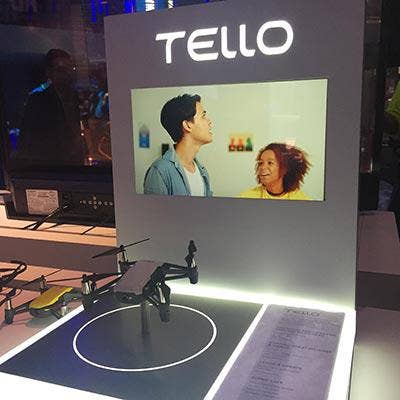
DJI Tello Drone
DJI, Intel, and Chinese company Ryze paired up to create the Tello drone, which the companies showed off at CES this year. At only $99, the drone is one of DJI's least expensive models (its next least expensive model is the $499 Spark drone). The drone touts 13 minutes of flight time, a 720P camera and technology that detects barriers to prevent collisions. While there are no further details available about when the drone will hit the market, the Tello will be available in color options of yellow, blue and white.
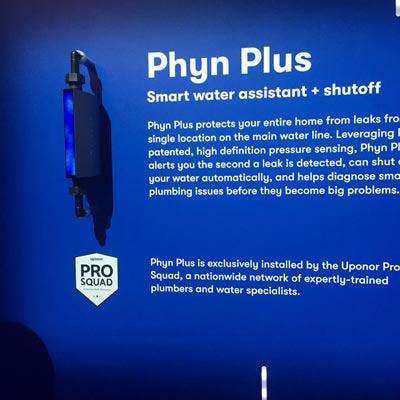
Phyn Plus
Belkin's Phyn Plus is a smart accessory monitoring the water systems in houses for leaks and other pressure issues. This IoT device, which is a joint project between Belkin and plumbing supplier Uponor, connects to smartphones and notify users if there are water issues in their houses – from frozen to leaking pipes. If there is a leak, the device can completely turn off the water to prevent flooding.
The Phyn Plus, which connects to 2.4 GH 802.11.b/g/n Wi-Fi will come to market in Spring 2018 starting at $850.
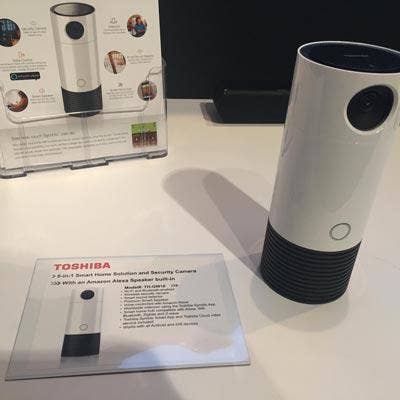
Toshiba's Symbio
Toshiba's smart home solution, Symbio, squeezes together multiple functions in a small, sleek hub. The 6-in-1 smart hub acts as a security camera, intercom and Amazon Alexa-enabled smart speaker that can control multiple functions in the house like fans and air conditioning. Symbio has a 1080p full HD camera for security, and features a security siren in case it detects a stranger, as well as alerting the user's smartphone. The Symbio is now on Amazon and costs $249.
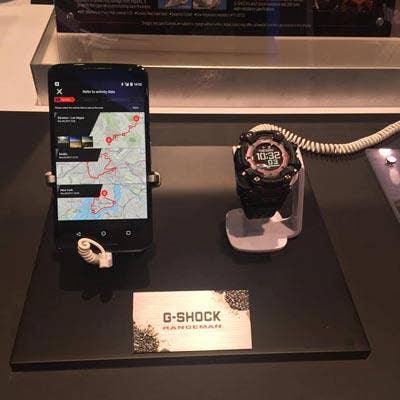
Casio's G-Shock Rangeman
Casio, which launched its newest smartwatch at CES, has designed an array of watches aimed for outdoor lovers – and this new watch is no exception. The G-Shock Rangeman GPR B-1000 comes fully equipped for the great outdoors, with a built-in GPS system and solar charging capabilities. The $800 watch, which will go on the market in April 2018, is water resistant and can withstand temperatures as low as -4 degree Fahrenheit.